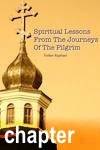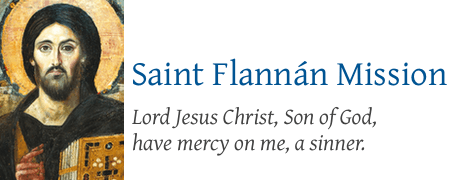 When we flip open the Holy Bible and writings, do we feel drawn to them with reverence, awe and love?
When we flip open the Holy Bible and writings, do we feel drawn to them with reverence, awe and love?
Dear beloved,
The pilgrim prayed with the good captain the previous night. When he woke up, he immediately went back to reading the Philokalia again. The pilgrim described the feeling as one of immense joy, as if he was reunited with a father he loved a great deal. The pilgrim therefore, is like an honest mirror. When we read the Holy Scripture and writings, do we feel drawn to them with love and joy? Do we show not just love, but reverence as well?
One part the Philokalia, written by Saint Theophilus of Philadelphia, explained that humans can perform 3 separate activities simultaneously, namely: (1) eat, (2) read, and (3) pray.
Let us break these activities down. Eating is a “physical” activity, one that sustains us. It need not be something we indulge incessantly. Reading is a “mental” activity, one that allows us read the Holy texts to awaken a part of us spiritually. And prayer, the most important activity of all, is an activity “from the heart”, and should be the heartbeat and breathing that allows our reading to take on new meaning, growing closer to God every moment. As we pray, think about the needs of others, and the wretched state we are in and the immense mercy God has given us in many life’s circumstances. Therefore, we can consider what activities in our lives are physical and mental, and give a sacred space to the activity of the heart – prayer.
The pilgrim parted company with the captain, and the captain kindly gave a little money to the pilgrim. The pilgrim remembered his promise to the two soldiers who robbed him, that he would pay them. He kept his promise to them and gave the little money the captain gave him, to the soldiers (Romans 12:20, St Matthew 5:44). In my own humble journey, Christ fully revealed His mercy to me, when I forgave someone who harmed me a great deal. When I had hatred or depression, I was blind to God’s presence right next to me. But when I dropped my burden of hatred and depression, the love of Christ blossomed and I was able, through our God’s mercy on an unworthy person like me, to receive Him, and to eventually become His servant.
The pilgrim kept walking, braving on in his journey. He kept praying, and kept referring back to the Philokalia. The only grief the pilgrim talked about was that he hoped he could find a permanent space to read the Philokalia and Holy Bible in peace. The pilgrim began to realize what the Holy Fathers meant when they said that the Philokalia is like the key to unlock the hidden meanings of the Holy Bible, because the pilgrim began to make more and more progress by reading both the Philokalia and the Holy Bible, strengthened by constant prayer.
Eventually, the pilgrim met a forester who lived deep in the forest, and lamented to the forester that he led such a wonderfully blessed eremitic life. The pilgrim has always shown to us, a heart of a hermit. Many of us however, are not hermits. We are called to be part of the world, to be in the world with others. If so, why would we want to be eremitic, or to have the heart of a hermit? The answer lies in inner prayer. When we go into our spiritual closet and pray, we are much like the hermits who left communities of people, to wander into the desert, where you find no one, see nothing but sand on end, and the plain deep blue sky. When we go about the daily routine, working, caring, eating, walking, we can still go into our spiritual closet and pray, with the heart safely secured in prayer, even as we engage in physical and mental activities.
The forester offered to the pilgrim a tremendous opportunity – to be with him in the forest, without any other human intervention, until the autumn when nearby people come forward to fell the trees. So the pilgrim gladly accepted to live off the land in the forest, knowing full well how transient this blessing would be, lasting until the autumn. Likewise, in life, we will face many opportunities and challenges. Each of these events will be transient, good or bad. Too often, we may cling on to particular events, people or places, and forget that all things must pass, because everything is part of God’s will, as well as His mercy that we may not fully understand. The pilgrim, unlike many, gladly accepted the offer to stay in the forest, and saw that as a great joy. How often do we take whatever that comes our way, however little it appear to our myopic eyes, that it may represent a great blessing, however transient? Have we examined these events in life and realized that they are not mere coincidences or mundane occurrences, but represent the greater reasons of God? Are we blissfully content with our lives and live them out walking in the ways of Christ (1 Timothy 6:6, and Hebrews 13:5)?
Would you consider walking with me, spending today, to pray the prayer of the heart, in between the cracks of time whenever you can?
“Lord Jesus Christ, Son of God, have mercy on me, a sinner.”
Book Index | Prev: Consolations in adversity | Next: Prayers & redemption
